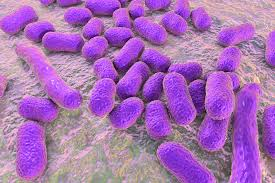
Breaking News
 Losing Chickens? Tools Needed for Trapping Poultry Predators
Losing Chickens? Tools Needed for Trapping Poultry Predators
 Metals Tell the Truth About the Economy
Metals Tell the Truth About the Economy
 RFK Jr. baffled over how Trump is alive with diet 'full of poison,'
RFK Jr. baffled over how Trump is alive with diet 'full of poison,'
 Dr. Peter McCullough Responds To Anthony Fauci Criminal Referral
Dr. Peter McCullough Responds To Anthony Fauci Criminal Referral
Top Tech News
 Superheat Unveils the H1: A Revolutionary Bitcoin-Mining Water Heater at CES 2026
Superheat Unveils the H1: A Revolutionary Bitcoin-Mining Water Heater at CES 2026
 World's most powerful hypergravity machine is 1,900X stronger than Earth
World's most powerful hypergravity machine is 1,900X stronger than Earth
 New battery idea gets lots of power out of unusual sulfur chemistry
New battery idea gets lots of power out of unusual sulfur chemistry
 Anti-Aging Drug Regrows Knee Cartilage in Major Breakthrough That Could End Knee Replacements
Anti-Aging Drug Regrows Knee Cartilage in Major Breakthrough That Could End Knee Replacements
 Scientists say recent advances in Quantum Entanglement...
Scientists say recent advances in Quantum Entanglement...
 Solid-State Batteries Are In 'Trailblazer' Mode. What's Holding Them Up?
Solid-State Batteries Are In 'Trailblazer' Mode. What's Holding Them Up?
 US Farmers Began Using Chemical Fertilizer After WW2. Comfrey Is a Natural Super Fertilizer
US Farmers Began Using Chemical Fertilizer After WW2. Comfrey Is a Natural Super Fertilizer
 Kawasaki's four-legged robot-horse vehicle is going into production
Kawasaki's four-legged robot-horse vehicle is going into production
 The First Production All-Solid-State Battery Is Here, And It Promises 5-Minute Charging
The First Production All-Solid-State Battery Is Here, And It Promises 5-Minute Charging
"Game-changing" synthesized antibiotic successfully treats infections for the first time

Now an international team of researchers has, for the first time, successfully synthesized the compound and used it to treat a bacterial infection in mice. This is an important milestone in the quest to develop a new antibiotic in the war against antibiotic-resistant superbugs.
"When teixobactin was discovered it was groundbreaking in itself as a new antibiotic which kills bacteria without detectable resistance including superbugs such as MRSA, but natural teixobactin was not created for human use," explains Ishwar Singh, one of the scientists involved in the new research.
Late last year, a University of Lincoln team revealed it had successfully developed a synthesized version of teixobactin, with an easier synthesis process speeding up a single coupling step from 30 hours to just 10 minutes. At the time, the potency of the new synthesized drug was only demonstrated in vitro.

 Storage doesn't get much cheaper than this
Storage doesn't get much cheaper than this

